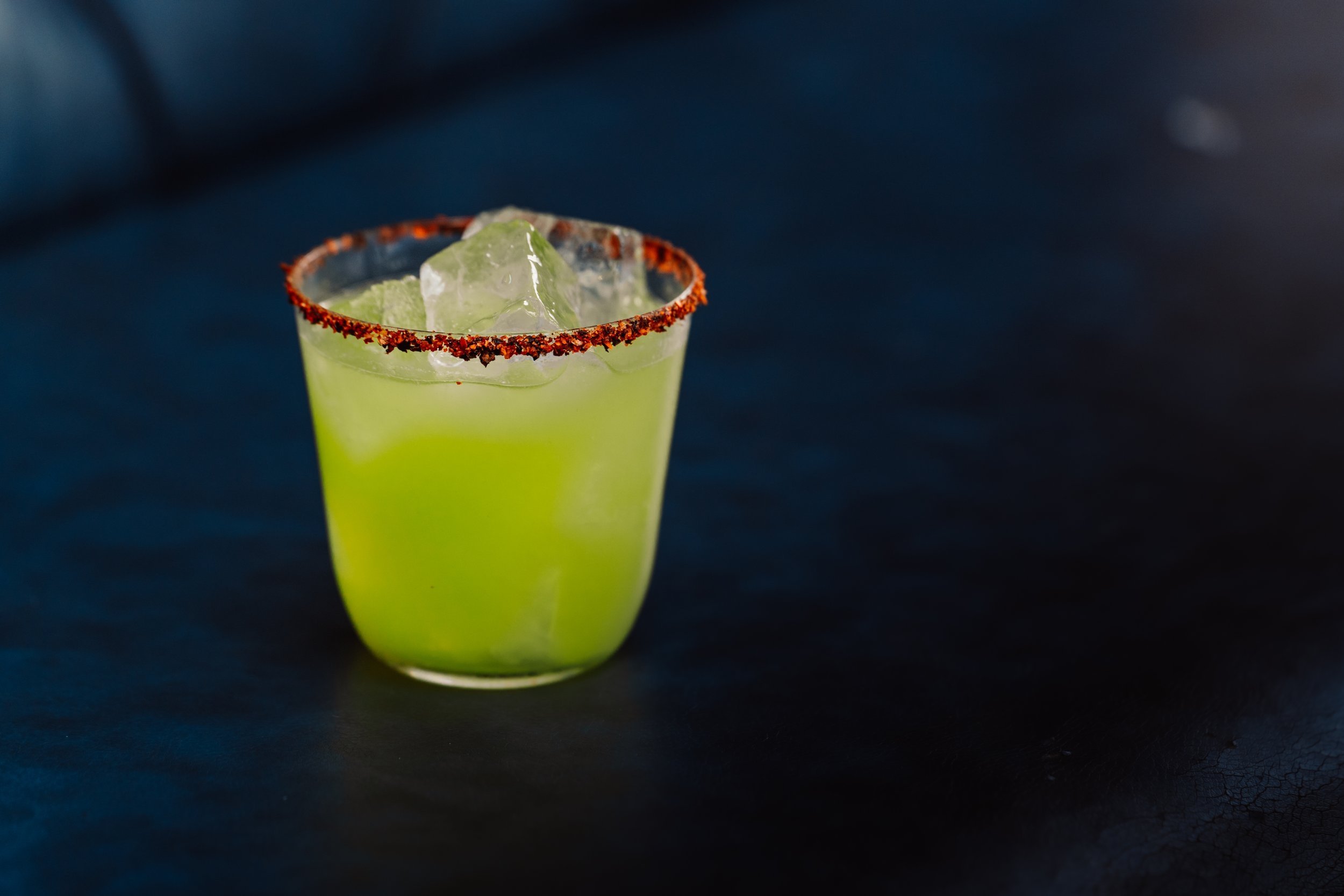
Ojo Rojo
COCKTAILS
We are a UK Top50 Cocktail Bar!
2022, 2023, 2024
All drinks subject to availability
The Journey
Plant
There are over 200 varieties of agave plant, also known as “Maguey” in the Aztec language Nahuatl, it held a central and multifaceted role in Aztec culture and mythology.
Around 40 varieties are used to make agave spirits. Often referred to as “the wine of the spirits world”, with each variety imparting its own flavours into the final spirit, as well as the same variety being affected by its own individual terroir.
PLANT
Agave spirits can only be made from mature plants.
The plants are generally monocarpic, meaning that the plant dies after flowering and fruiting. Once the plant reaches sexual maturity, which takes anywhere from 5 to 35 years, it uses all its energy to grow its flowering stalks, also called quiotes. Quiotes can reach more than 9 meters in height in some species.
HARVEST
Once the agave’s are mature they are hand harvested by skilled farmers called ‘Jimadors’. Chopping away the sharp, spiky leaves to reveal the Pina. The pina is the heart of the agave. Varying in size, some have been known to weigh as much as 1000 pounds. As the plant ages, the pina accumulates sugar and starch. It is this heart that is used to produce all agave spirits.
HARVEST
This back breaking work is usually done at dawn, out of the heat of the day. The agave hearts are then transported to the palenque by various means; truck, tractor, even horses and mules, ready for cooking.
cooking
The maguey are full of complex carbohydrates called inulins. This must be hydrolyzed to convert them into simpler, fermentable sugars. This is done thermically – cooking in earthen pits as we see in the production of Mezcal or with steam in either brick ovens or stainless-steel autoclaves which are used for Tequila.
COOKING
The various cooking methods used in production play a key role in the final flavour of the spirit. The slow braising of the pinas that are cooked in earthen pits will have a delicate smoky flavour with rich burnt honey notes whilst the quicker steam cooking will impart very little additional flavours, keeping the spirit brighter.
milling
Once the cooked maguey has been removed from the oven, cooled, and sorted, it must be crushed. Maceration with a mule-or horse drawn stone wheel, also called a Tahona is common, mechanical shredders are often used for Tequila production and larger scale industrialised Mezcal..
milling
Ancestral mezcales are crushed by hand with large wooden mallets. When the agave has been completely pulverized into fiber and wet pulp, it is ready for fermentation.
fermentation
The crushed maguey will ferment naturally, with the addition of water. Fermentation generally takes one to four weeks, depending on factors like sugar content, temperature, altitude, and proximity to other plants, flora and fauna. Fermentation is where the magic happens, determining the complex flavors for the final product.
fermentation
Fermentation vats are usually made of wood, but stone, concrete, animal hide, and even plastic are also used. A traditional mezcalero will watch, listen to, smell, touch, and taste the fermenting mash more frequently as the sugar content drops and alcohol rises.
distillation
The low-alcohol mosto from the fermentation will now be distilled, separating ethyl alcohol and certain flavour compounds from water, solids, and undesirable elements. Tequila can be distilled in alembic pot stills or in more modern distillation columns.
distillation
For Mezcal the fermented maguey - juice, fiber, and all - is loaded into a still. In Oaxaca, there are three primary types of stills; copper alembics, alembics with a refrescadera, and so-called “Filipino” clay-pot stills. Mezcal may be distilled once, twice, or three times.
ageing
To make reposado, añejo, or extra-añejo Tequila, we need some kind of oak vessel. Tequila is most commonly aged in American whiskey barrels. Barrel aging imparts colour, aroma and flavour, while allowing the tequila to breathe and soften with time. Mezcal can also be aged in barrel but it is rare to see.
pechuga
Pechuga: Meaning “breast,” a traditional Mezcal style in which poultry, other meat, and/or local fruits and spices are present in the final distillation. Defined as the “Destilado con”.
These were traditionally made for celebrations and only shared with the family and close friends.















